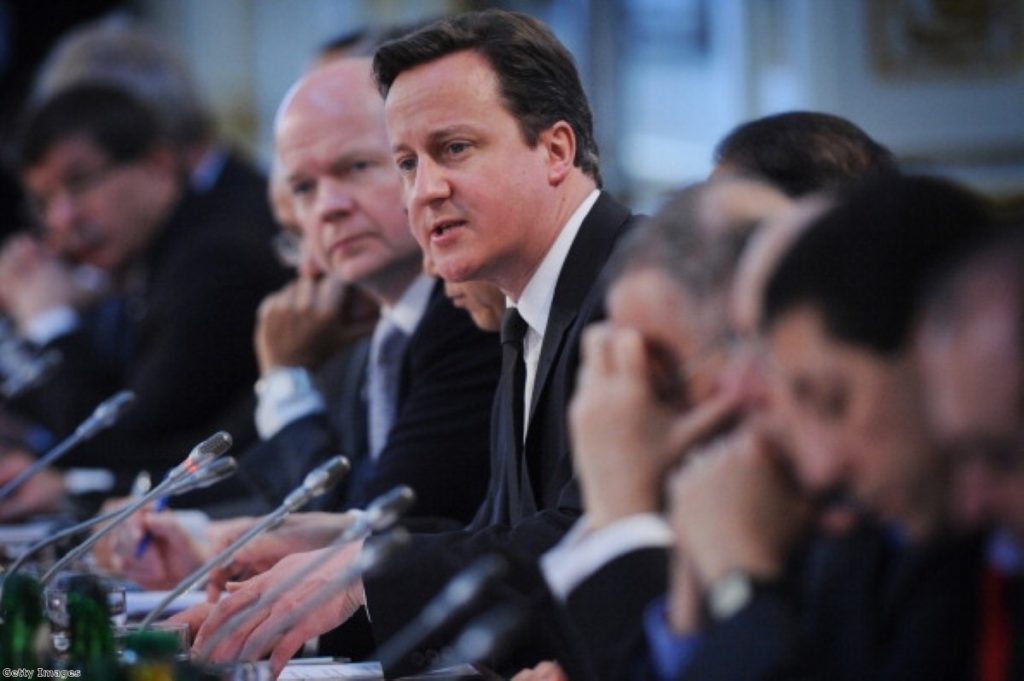The week in politics: A welcome distraction
Thank goodness for Libya, the coalition will be thinking. At least it's helped distract from another frustrating week for the government.
By Alex Stevenson Follow @alex__stevenson
Muammar Gaddafi's reduction from dictator to would-be guerrilla leader (he's promising a "war of bees", which, taken literally, would be quite a sight) has enabled David Cameron to rise above the misery of domestic politics. His highlight of the week came yesterday, when he was able to stand alongside French president Nicolas Sarkozy and lap up the credit, 'mission accomplished' style, at a major summit in Paris. The international community appears to be embracing the national transitional council, another plus. Success in Libya is perfectly timed for Cameron, who will enjoy a triumphalist statement to the Commons next week.
Just as well, really, for otherwise it's been a tough week for the government. Its banking reform proposals are a particular sore spot, after some uncompromising efforts to scupper the ringfencing proposals from the CBI and other business lobby groups. We've got to wait until September 12th to discover the government's response to Sir John Vickers' independent commission on the issue. It's currently far from clear whether they'll cave in or not.


Such is the coalition's readiness to U-turn that even the British Medical Association have resumed their campaigning against the NHS reforms. This is bad news for Andrew Lansley, who had hoped all that trouble was well and truly behind him. Apparently not.
The same health and social care bill also now poses a threat to David Cameron's authority, after he made clear he did not support an amendment from Tory backbencher Nadine Dorries about abortion counselling. A free vote is expected, but with the PM having expressed his view many will see the vote as a test of his authority. Will he be able to win that battle?
This week hasn't just been about looking forward to parliament's return on Monday, however. Fallout from last month's riots has continued apace, most notably with a surprisingly blunt speech from education secretary Michael Gove about the "underclass" inhabiting our schools. Those who rioted, who have a "poverty of soul" according to Gove, need a bit of "tough love", according to Cameron. A research project has suggested lack of trust in politicians was a key factor in the riots, however. This debate is going to run and run.
Meanwhile, it's been a year since Tony Blair's memoirs came out – gone by fast, hasn't it? This autumn we're being treated to the musings of another key New Labour figure, former chancellor Alistair Darling. His book doesn't hold back as it describes his "brutal and volcanic" boss, Gordon Brown. Former US vice-president Dick Cheney is more complimentary towards Brown's predecessor, Tony Blair, in his own memoirs, who he said he was "privileged" to hear Blair agree with him about Iraq.
In other news, the Scottish government faced a stern talking-to from Scottish secretary Michael Moore; Tory MPs' feathers were ruffled by the growing funding gap between England and the other three UK nations; and former Cabinet minister Andrew Adonis told us why he's keen for Labour and the Liberal Democrats to start talks – immediately. Surely, Cameron might say, the coalition isn't as bad as all that?

